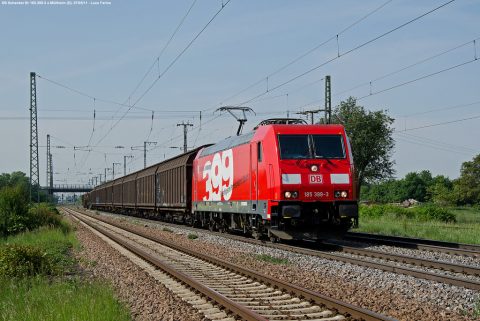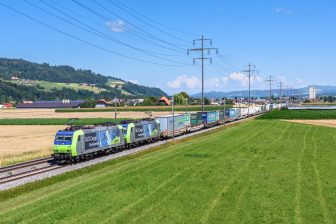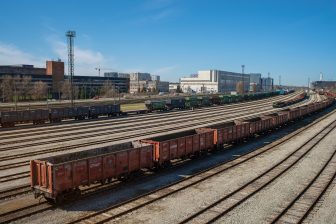
DB Schenker will not be sold
Deutsche Bahn wants to focus on its core business in the coming years. This means, among other things, that the market share of DB Cargo must increase considerably. CEO Richard Lutz also announced that DB Schenker will not be sold. The subsidiary turned out to be a real profit machine last year, while DB Cargo suffered heavy losses.
Lutz presented his new strategy at a meeting in the Kaiserbahnhof in Potsdam, in the presence of the Deutsche Bahn Supervisory Board. The plans have been dubbed Strong Rail. An important objective for DB is to increase rail freight volumes. In the coming years no less than 70 per cent more goods must be transported by rail. This should result in a market share of 25 per cent in 2030. That is now 18 per cent. “DB Cargo has a long and hard way to go to reach this goal”, said Lutz, but he is convinced that it will ultimately work.
Losses
Last autumn Lutz sent an urgent letter to the senior management at DB. He stated that the company was not doing well. The results are under pressure, among other things due to various setbacks and a cargo department that saw poor results for many years.
Last year ‘Cargo’ recorded a loss of 190 million Euros. That was double the deficit compared to a year earlier. Turnover also fell, although this was a modest decrease of 1.5 per cent. The volumes were 5.5 per cent lower last year than the year before.
Earlier this year, the German Court of Auditors was also critical of Deutsche Bahn. The institute stated that DB had to slim down its international components and focus more on rail activities in the home country. The carrier is said to have neglected the latter in recent years, while much attention was paid to the business across the border, which contributed little to the quality of German rail transport. The Court found that this had to change. Lutz has listened to that.
Investments
To reach the objectives of Strong Rail, DB wants to invest heavily in equipment and personnel. For example, the company will purchase three hundred locomotives and recruit one hundred thousand people, although these are total figures, including passenger transport and other activities. All this involves tens of billions of Euros.
According to Lutz, Deutsche Bahn plays a central role in achieving the climate goals of German politics. “Only if we succeed in moving traffic en masse to rail we can achieve these goals”, he said. With this he made a call to politicians and government, among others, to make this ‘modal shift’ possible. According to DB, it is essential to invest in both the existing railway and new connections. That money must not only come from the transport company itself and from the government, but also from other rail companies.
DB also reports that it wants to significantly reduce its CO2 emissions in the coming years. If everything goes according to plan, all trains must be climate neutral by 2038, as the electrical energy comes exclusively from sustainable sources.
DB Schenker
Although the focus in the coming years will be on the home country, DB does not intend to fully withdraw from its cross-border operations. According to Lutz, rail cannot be seen without an international perspective. Good connections with other modalities are also of great importance. “The needs of our customers, both passengers and shippers, do not stop at national borders. Moreover, rail services cannot meet all requirements.”
Partly for this reason, the internationally operating logistics service provider DB Schenker remains in DB hands. Earlier this year there were reports that the subsidiary would be sold. The German Court of Audit also thought it was a good idea to sell Schenker.
Lutz, however, reports that he has no intention of selling the business.
According to him, it is an important branch of the group portfolio and therefore has a lot of added value. Moreover, figures show that DB Schenker turned out to be a real profit machine last year. It saw its revenue increase by 3.8 per cent and its pre-tax result even by 5.5 per cent.
Re-examining subsidiaries
This being said, Lutz indicates that he is re-examining all companies in which DB has a significant stake. In addition, the CEO looks at the contribution that each company has to the development of a powerful rail transport system. DB Schenker is therefore not sold, but for example Arriva is, because it “has no strategic relevance”.
This subsidiary focuses on passenger transport, including in the Netherlands, and has been on offer for some time. Allegedly, investment companies in particular have shown an interest in taking over the business unit. Experts say that about 3.9 billion Dollars would be involved in a possible transaction.




